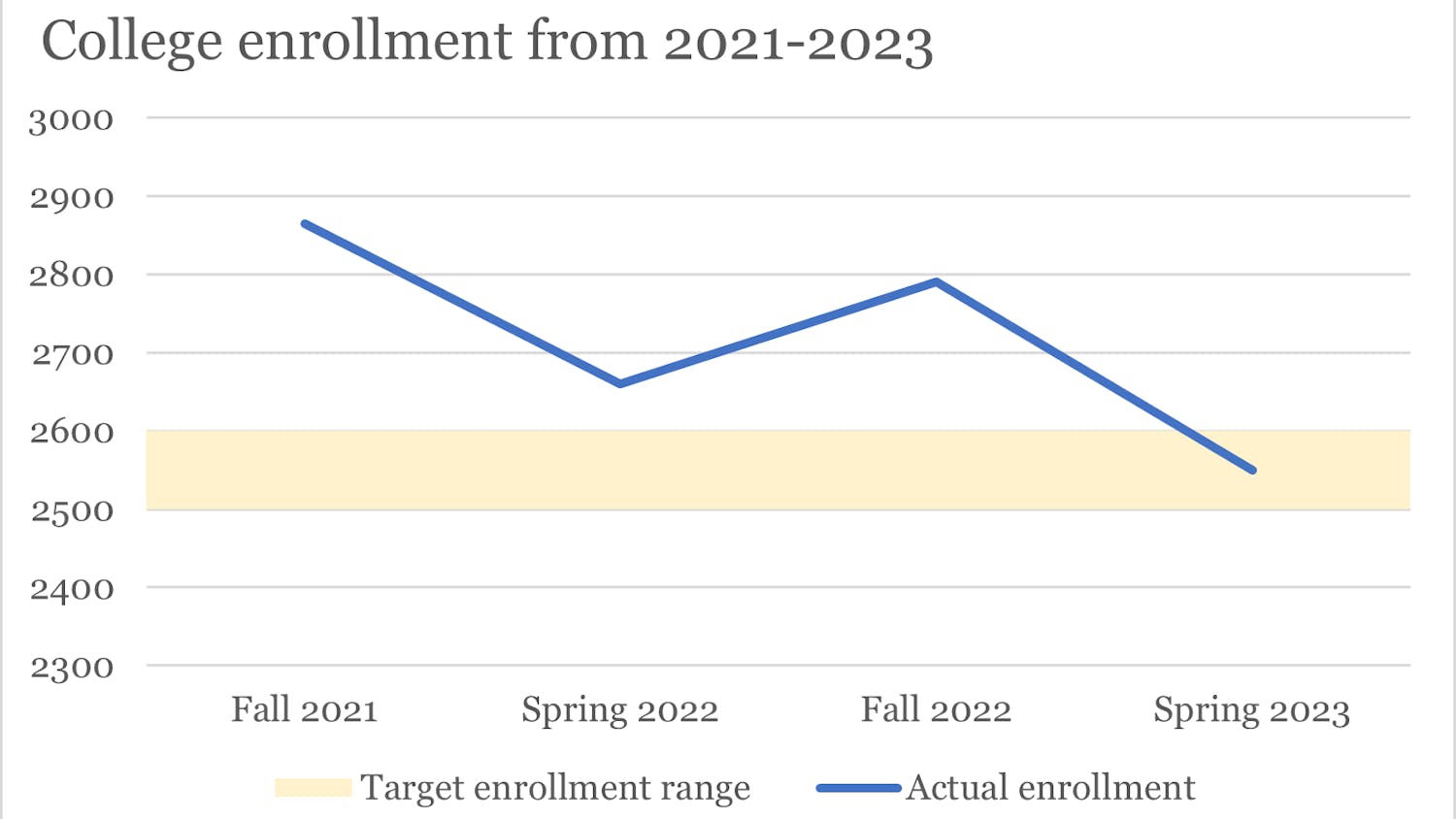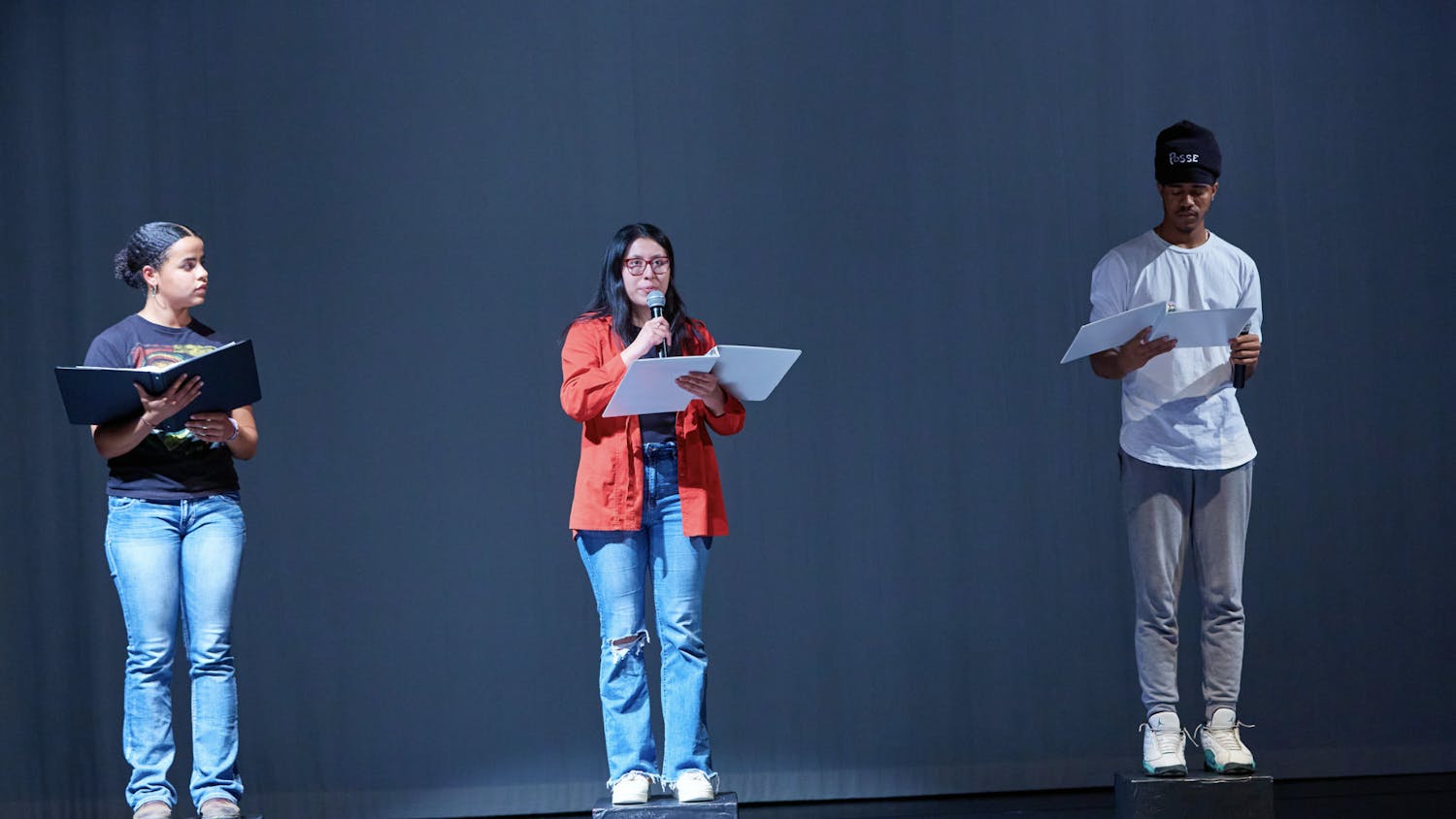Middlebury is offering a one-time opportunity for incoming first-year students to spend their first semester in Copenhagen at the DIS: Study Abroad in Scandinavia program. Thirty-two members of the class of 2027 will take a total of four courses with two Middlebury professors designed to immerse them in intellectual and cultural adventures that focus on global education.
The students will travel together to Copenhagen on Aug. 18 and return home on Dec. 15 of this year. According to Michelle McCauley, interim executive vice president and provost, it is impossible for Middlebury to run orientation during the winter term, so the cohort will either take J-Term classes virtually or pursue off-campus internships — a change from the longstanding policy requiring first-years to stay on campus for their first J-Term — until they arrive at campus for February orientation.
Middlebury professors Barbara Hofer and Timothy Case will teach first-year seminars “The Cultural Psychology of Happiness” and “The Climate Crisis & the Photography of Place,” respectively. Students will also take three other classes taught by DIS faculty, including the core course “Cultural Diversity and Integration,” along with “Danish Language and Culture” and an elective.
Since the first-year seminar is students’ first contact with the rigorous academic standards they will experience at Middlebury, Case designed his course to prepare students for a Middlebury education by teaching them how to be global citizens.
“In that vein, the course will engage students in the planet’s climate crisis through learning about the science, researching impacts and mitigations in Copenhagen, and field studies and photo shoots in and around the city,” Case wrote in an email to The Campus. “They will return from the experience intellectually and emotionally broadened, enriched by a close-knit peer group with a deeply felt shared experience, and embodied with an enhanced sense of their place in the global community.”
Hofer expressed similar goals of keeping these first-year students connected to Middlebury and working to build their time management and research skills. She said she looks forward to the unique advantages offered by teaching the course in Copenhagen.
“My first-year seminar is a course I’ve considered offering as a winter term course at Middlebury (and might do so in the future), and I think that getting to teach it to students living in one of the happiest cultures in the world is ideal,” Hofer wrote in an email to The Campus. “Positive psychology courses are often critiqued as too self-focused, so adding a cultural lens will enable us to look at what kinds of societal affordances and constraints affect human flourishing.”
Students in this program will pay the normal Middlebury tuition, room, board and activity fee, which in total will cost $41,940. This includes housing, a monthly meal stipend, books, airfare and educational opportunities outside of class. The students’ Middlebury financial aid package will transfer to the DIS program — this is different from the DIS program for upperclassmen to which financial aid does not transfer.
“Unlike when students normally study abroad on externally sponsored programs, Middlebury is allowing students to carry both their federal and institutional financial aid,” McCauley wrote in an email to The Campus.
Students attending the program will also receive a $500 per month food stipend and $1,500 to cover airfare. Regular DIS students receive about $600 for the semester in a food stipend and no airfare coverage.
According to Dean of International Programs and Professor of Psychology Carlos Vélez, the new program offers a meaningful and rich experience to students that has the potential to help them later on in their studies.
“Students can start at Middlebury with a global perspective, a close community of peers, and valuable academic skills that will enrich the rest of the Middlebury experience,” Vélez said. “More and more colleges are offering first-year study abroad programs and have seen a lot of success with them; these students often study abroad again later in their college careers, and many go on to study languages and international studies.”
The program was primarily created to help manage over-enrollment, which was exacerbated by the Covid-19 pandemic. There are approximately 2,550 students on campus this semester, and the administration expects this number to increase in the fall.
“Our commitment to offering flexibility to our students as they navigated the pandemic has resulted in an unexpectedly modest number of students (about 420) who will graduate in May, and, relatedly, a large group of students (more than 200, instead of the usual 100) who are expected to graduate in February 2024,” McCauley wrote. “Although the number of students who are studying abroad has returned to pre-pandemic levels, students are disproportionately choosing to be off campus in the spring.”
The college offered a $2,000 travel reimbursement for anyone willing to switch their spring study abroad semester to the fall.
“We know that it will be a challenge to identify on-campus housing for all of the students who have expressed intentions to be on campus. For this reason, we have developed a couple of new study abroad options,” McCauley wrote.
The administration partnered with DIS: Study Abroad in Scandinavia because DIS is experienced in running first-year and other customized programs and was able to organize this program in a relatively short period of time, according to Vélez. DIS also regularly welcomes visiting faculty, making them suitable hosts for this program’s professors.
Alexander Perez Jr. ’27 is interested in the Denmark program because he has always dreamed of exploring other countries. “On April 6th, I received an email from Middlebury introducing me to a new opportunity, which was the chance to spend my first semester in Copenhagen,” Perez wrote in an email to The Campus. “It is a great opportunity for students to gain such a memorable experience, to see how people live in a different way of their own, and to make great friends and interact with others along the way.”
During J-Term, Perez said he will be expanding on what he learned in Copenhagen.
“Instead of practicing mindful photography in Denmark and doing an investigation of how climate change affects the area of Copenhagen, it will be focused on my home state of Virginia,” Perez wrote.
The program was approved by McCauley in consultation with David Provost, executive vice president for finance and administration.
“The College’s Curriculum Committee reviewed the two first year seminar courses,” McCauley wrote. “The electives the students will be taking were reviewed and approved for Middlebury credit by the dean of curriculum; they are similar to courses Middlebury students have taken at DIS in the past.”
When asked about faculty response to the program, McCauley added it was generally well-received, though the administration did hear that some faculty were surprised.
Professor of Mathematics Mike Olinick said he believes the program is a major educational policy that should have been formally voted on by the faculty.
“Major educational policies are supposed to be decided by the faculty. Approval of new departments, majors, anything that affects the education requirements for our students is under faculty control. It’s part of the faculty governance process in most institutions of higher learning,” Olinick said.
The Copenhagen program will permit first-year students to do internships during J-Term, an option currently prohibited by Student Handbook policies as adopted by the faculty.
Olinick noted that historically even small changes to educational policy have gone through a faculty vote.
A few hours before the April 7 faculty meeting, faculty received an email informing them that the program was already offered to incoming students, and the details were already on the webpage.
“We were able to discuss it at the faculty meeting, but we couldn’t do anything at that point. We were told that a number of the incoming students had already applied to the program,” Olinick said. “People had some questions about it. People pointed out some of the problems with it.”
Olinick said he believes the college could have solved the over-enrollment and housing issues in other ways, like admitting fewer students next September or opening up the Bread Loaf campus for housing.
“The college spent several millions of dollars weatherizing those [Bread Loaf] buildings so that they could be used throughout the fall term. They did house students up there a couple of years ago. It wasn’t a popular option, but it was an option. We have the facilities to do it,” Olinick said.
He stated that the appropriate route for approving this program would involve serious consultation with the faculty council, who would have weighed in on what would be the appropriate procedure to adopt this proposal. It could have been introduced at one faculty meeting or voted on at the next meeting, or they could have called an emergency meeting of the faculty. Olinick said the faculty would have likely approved the program as an interim measure had they been given the opportunity to consider it.
“Administration will say they were kind of in an emergency, however, it takes time to set up a program like this,” Olinick said. “This was a pretty egregious step by the administration — a serious violation of how we’re supposed to do things at the college. There might be a motion to censure the administration at the May faculty meeting.”




